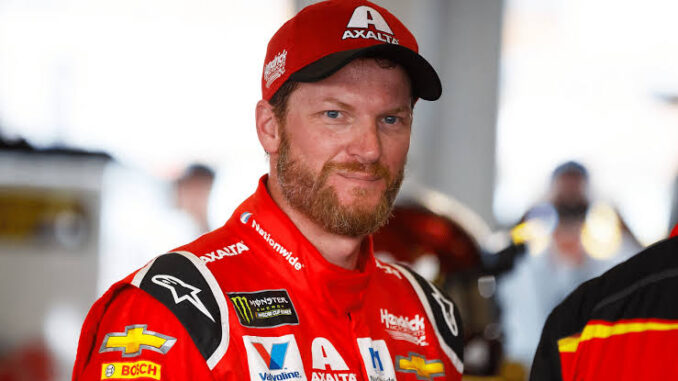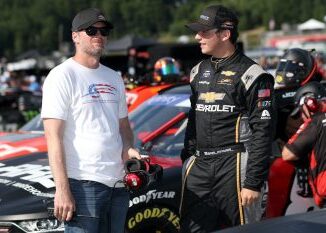
Dale Earnhardt Jr., one of NASCAR’s most beloved figures, recently made a stunning revelation that is sure to turn heads in the motorsport world. In an interview, the racing legend openly discussed the deep-rooted issues of manipulation within the NASCAR industry, stating, “No one in NASCAR is innocent of manipulation.” His candid comments shine a light on practices that have long been a part of the sport, offering a perspective that fans and insiders alike may not have fully grasped.
Earnhardt Jr.’s statement doesn’t point to a specific individual or team but suggests that the manipulation in NASCAR is more widespread, involving various elements of the sport, from drivers to teams, and even the governing bodies. This acknowledgment of manipulation may come as a surprise to many, especially considering Earnhardt Jr.’s reputation for integrity and transparency in a sport known for its high stakes and intense competition. However, his admission serves as a reminder that even the most respected figures in racing can’t escape the pressures that come with performing at the highest level.
The manipulation that Earnhardt Jr. alludes to can take many forms, from team orders and strategic racing to more subtle influences on race outcomes. Fans may recall instances where drivers were instructed to yield or adjust their strategies to benefit teammates or manufacturers. While this is often done for the greater good of the team, it raises questions about the fairness and authenticity of the racing experience. For years, such practices have been the subject of whispers in the NASCAR community, but Earnhardt Jr.’s bold statement brings them to the forefront.
Furthermore, Earnhardt Jr. touches on how the competitive nature of NASCAR, combined with its business elements, inevitably leads to situations where manipulation can thrive. Teams and drivers face constant pressure to secure victories, sponsorships, and lucrative contracts, which can sometimes result in decisions that prioritize profit over pure competition. This dynamic creates an environment where manipulation—whether through race strategy or other means—becomes an accepted part of the game.
In his remarks, Earnhardt Jr. doesn’t seem to suggest that the manipulation is necessarily malicious, but rather an inevitable byproduct of the high-stakes environment NASCAR operates in. However, by revealing this underlying issue, he’s opening up a broader conversation about the balance between competition, fairness, and the business interests that drive the sport. His comments might inspire both fans and industry insiders to reconsider the true nature of what’s happening behind the scenes in NASCAR racing.



Be the first to comment